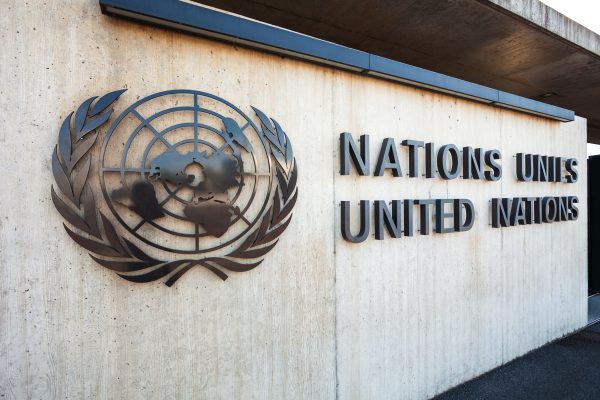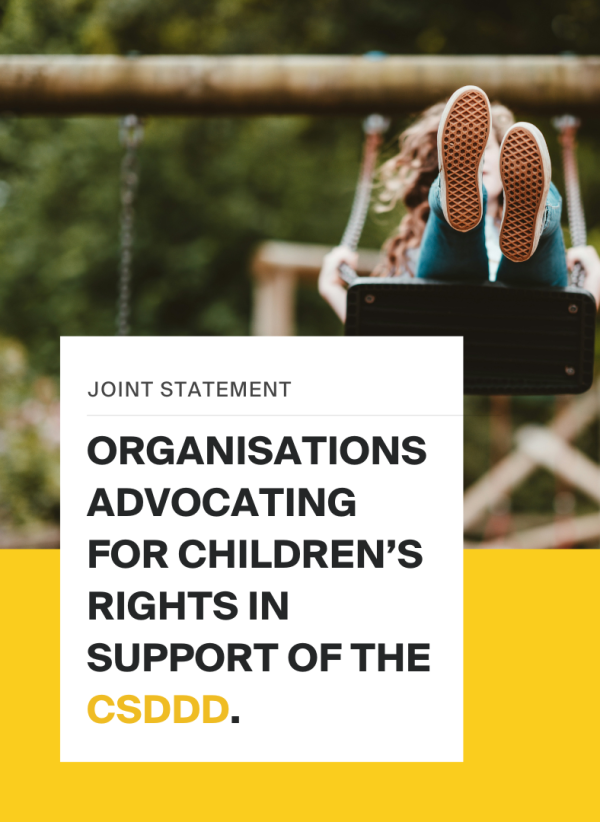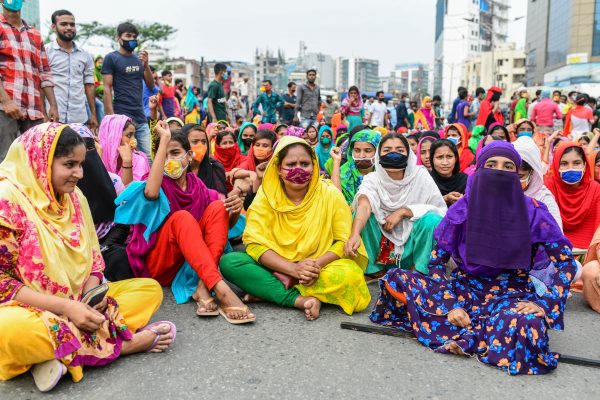This website uses cookies so that we can provide you with the best user experience possible. Cookie information is stored in your browser and performs functions such as recognising you when you return to our website and helping our team to understand which sections of the website you find most interesting and useful.

The final day of the sixth session of the UN Treaty negotiations began with a discussion on the final draft articles and ended with the adoption of the final report and conclusions. “The active participation of many stakeholders in this round of talks showed just how important the issue of business and human rights really is in ensuring a sustainable recovery from the COVID-19 crisis,” says ECCJ’s Policy Officer Sylvia Obregon Quiroz.
EU still absent
The day began with a brief exchange on the obligation for each state party to provide copies of its laws and regulations that would give effect to this legally binding instrument (article 16.2) and whether the purpose of this article is to create a comprehensive legislative database.
Notably absent, however, was the EU delegation. “At this point, it is imperative that the EU and its Member States genuinely commit to the UN Treaty process. It’s an opportunity for the bloc to shape global developments at a critical time in its history,” she explains. The EU is currently considering regional legislation on mandatory human rights and environmental due diligence obligations for EU companies.
Panama: include child soldiers and child labour
The Russian Federation kicked off a heated discussion on provisions covering vulnerable groups, arguing against including migrants as persons exposed to a heightened risk of human rights violations. According to the Russian delegate, the change of one’s country of residence does not automatically place an individual in a vulnerable situation. This was rebuked by Panama for ignoring that migrants are often subject to different forms of slavery or forced labour, among other human rights violations. Panama suggested that people of African descent and the elderly be listed as facing heightened risks of human rights abuse. The Philippines and Indonesia joined the discussion to add the urban poor, persons with disabilities and local communities to the list.
Panama then suggested to include the use of child soldiers and the worst forms of child labour, including forced and hazardous child labour, in article 16.3 on cases of business activities where special attention is needed.
Monitoring, prevention, and reparation
Regarding article 16.5, the Russian Federation expressed its strong preference for establishing a procedure for dispute settlement on the basis of consultations and negotiations, and requested further clarification on the application of international humanitarian law. Panama then suggested the inclusion of a more general reference to international law.
On the issue of implementation, Chile recommended that commitments in this Treaty should be realised gradually. With the support of several other participating states, the Chilean delegate explained that monitoring, prevention, and reparation mechanisms require significant resources and groundwork.
Conference of State Parties
Talks continued on the Conference of State Parties – a biennial event to consider matters related to implementation – with the Russian Delegation again taking the podium to argue that the voting procedure would provide excessive weight to regional organisations like the European Union, which would automatically accumulate the votes of their Member States. The current text does not foresee any balancing mechanisms, which would uphold the rights of other states, the delegate argued.
Global Campaign to Dismantle Corporate Power: prohibit of direct industry representation
To protect the Treaty process from corporate interference, the Global Campaign to Dismantle Corporate Power asked state delegations to include a prohibition of direct industry representation in policy making and government control bodies, and a requirement to put in place a policy to block the revolving door across all institutions and processes at the national and international levels. Due to existing power asymmetry, corporations should not be granted additional privileges, access, or influence.
The exchange of views concluded with a suggestion by the International Organisation of Employers to completely restart the process, saying that the discussions about implementation were premature until all definitions, scope and jurisdiction are clear.
Adoption of the final report
The day ended with the adoption of the final report and a call for a new session of the working group in 2021. “The sixth session ended with an abundance of statements but no clear negotiated reforms to the text,” explains Obregon Quiroz.
There was, however, a clear indication of willingness to move towards more textual negotiations. The Secretariat will compile and distribute two documents by March 2021, which will contain: 1) concrete suggestions, modifications, deletions, as well as expressions of support for the current provisions of the second draft text; and 2) general comments and requests for clarification. “This commitment by the Secretariat to move the process forward is a positive omen for next year’s session,” she adds.
All stakeholders will be able to table their submissions until the end of February 2021.
As we have reported throughout the week, this year’s round of negotiations saw increasing polarisation of state positions. However, “despite some states opposing key provisions, which are absolutely necessary to mainstream corporate due diligence and bring justice to affected workers and communities, we remain convinced that most do share an understanding that corporations should address the adverse impacts of their global operations,” says ECCJ’s Policy Officer Alejandro García Esteban.
“States must now also understand that the latest draft text is legally feasible and absolutely essential for a fair and sustainable global economic order, ” he concludes.












